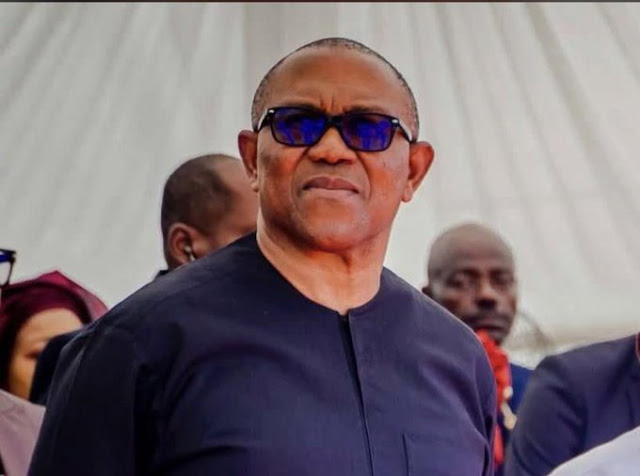Speculations surrounding Peter Obi’s eligibility to contest under the African Democratic Congress (ADC) banner in the 2027 presidential race have been firmly laid to rest by the party’s leadership.
The interim National Publicity Secretary of the ADC, Mallam Bolaji Abdullahi, addressed the issue publicly, dispelling widespread rumours that the former Labour Party (LP) presidential candidate would be disqualified unless he severed ties with the LP. His comments provided clarity at a time when questions were swirling around the conditions under which politicians are joining the broader opposition coalition.
According to Abdullahi, the ADC made a deliberate and strategic decision to allow Obi to retain his Labour Party affiliation, at least temporarily. This move, he said, reflects the complex political dynamics of the moment, especially with the ongoing electoral processes involving several of Obi’s core supporters.
“Peter Obi is not only an integral part of the opposition coalition, but he has also been granted a special concession,” Abdullahi revealed. “This means he is not required to resign from the Labour Party at this stage. The decision was taken after due consideration of the circumstances involving his political allies.”
Several of Obi’s close allies are currently running for office in the upcoming Anambra governorship elections under the LP platform. For the sake of continuity and political leverage, the ADC leadership has chosen to allow him to remain affiliated with his current party. Abdullahi emphasized that this arrangement would last until the electoral processes in question are concluded.
A similar political courtesy has been extended to former Kaduna State governor, Mallam Nasir El-Rufai, who also maintains affiliations with the Social Democratic Party (SDP). El-Rufai is supporting candidates running for federal legislative bye-elections under the SDP, and like Obi, he is expected to formally transition into the coalition post-election.
This dual waiver arrangement suggests that the ADC and the broader opposition coalition are prioritizing strategy over rigid formalities. Abdullahi explained that while some political heavyweights such as Atiku Abubakar and Rotimi Amaechi have resigned from their previous parties to join the coalition outright, others have been given more flexible terms based on their current political engagements.
“Every politician in this alliance brings something unique to the table. In Obi and El-Rufai’s cases, their political networks and grassroots structures are still active under their current parties. Forcing them to withdraw prematurely could destabilize important ongoing campaigns,” Abdullahi said.
The decision is part of a broader strategic blueprint being adopted by the new coalition, which seeks to unite key opposition voices ahead of the 2027 general elections. Political observers have interpreted this as a calculated move to consolidate influence across multiple platforms without losing political capital.
While questions still linger about the coalition’s long-term structure, this flexibility signals a shift toward more pragmatic politics. By allowing Obi and El-Rufai to maintain their positions temporarily, the ADC has shown a willingness to adapt its approach based on the realities on ground.
Abdullahi was quick to note that once the ongoing elections conclude, both Obi and El-Rufai are expected to fully transition into the coalition. “This is not an indefinite arrangement,” he said. “The expectation is that after these current electoral processes are completed, they will formalize their membership.”
This announcement comes amid a flurry of political realignments as Nigeria’s opposition figures gear up for what many anticipate will be one of the most competitive presidential contests in recent history. The inclusion of key players such as Peter Obi and El-Rufai, even under special terms, is widely seen as a boost for the coalition's chances.
Obi, who emerged as a powerful third force in the 2023 elections, remains a formidable figure in Nigerian politics. His supporters have continued to show strong grassroots mobilization, particularly in the southeastern region. Retaining that momentum appears to be one of the driving reasons behind the ADC’s unusual but calculated concession.
As the country inches closer to another defining election cycle, political arrangements like this highlight the ongoing evolution of Nigeria’s democratic landscape. The ADC’s move to retain political heavyweights while navigating complex affiliations may well set the tone for more adaptive strategies in the months to come.













![Content Creator Angelica Kelechi Speaks Out on Alleged Sexual Assault at Khloe Abiri’s Spa [VIDEO]](https://blogger.googleusercontent.com/img/b/R29vZ2xl/AVvXsEgQStip4cn2DAOvQ2hNFU30OAFWoxfQIDOnStd0uVgwwxKrFAQYYvtFni6QV04OGP8dyKk5TCAhXM5es9linl1ClhjPzaazz2tTt0LmJ5lFVe5202o2McF9QROT1v2hEyNTdY-M1KRuLTY6OqqysKNfcsY5bCtwCIP8wEQ4AXcfQfTaXWWZiixqf82NDH5a/w72-h72-p-k-no-nu/abiri-khloe123.jpg)

![Bello El-Rufai Questions Discrepancy As Boko Haram Terrorist Gets 20Years While Nnamdi Kanu Receives Life Sentence [VIDEO]](https://blogger.googleusercontent.com/img/b/R29vZ2xl/AVvXsEiWSu8zIQCe1XyQUKpvkUYY03fJRFWUlJkrlvEZioStBVV0gT0uVjMg64uBqblrA0aTyaQ4RD8mhelxNq7VGPBtsNFzDl9sS880MvdKXa2d964PDDf9atDRlVMzCw2qE7vtqGj1NNyq2IVC6d3c4qqdeGP6QgwPUInkpB3rWonFU75SMJfs-ql5uH7IzchQ/w72-h72-p-k-no-nu/Bello-El-rufai1123.jpg)




0 Comments
Hey there! We love hearing from you. Feel free to share your thoughts, ask questions, or add to the conversation. Just keep it respectful, relevant, and free from spam. Let’s keep this space welcoming for everyone. Thanks for being part of the discussion! 😊